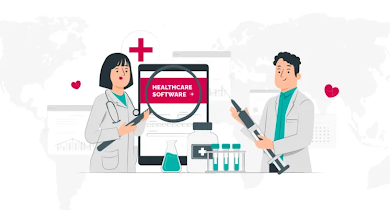Impact of Medical Research Grants on Public Health

Medical research grants are pivotal in advancing public health. They fund innovative research projects, facilitate the discovery of new treatments, and improve healthcare infrastructure. Governmental bodies, non-profit organizations, and private institutions often provide these grants, significantly influencing the global health landscape.
This exploration examines the proper impact of medical research grants, examining how they translate scientific breakthroughs into tangible benefits for individuals & communities worldwide.
Why Medical Research Grants Matter
Medical research is a long and complex process, requiring substantial resources and sustained effort. Grants play a crucial role by:
- Funding Basic Science: Grants support fundamental scientific investigations that lay the groundwork for future discoveries. This includes research into the underlying mechanisms of disease, genetic factors, and biological processes.
- Translating Discoveries into Treatments: Grants facilitate the translation of essential science findings into practical applications, such as new diagnostic tools, therapies, and preventive strategies.
- Supporting Clinical Trials: Clinical trials, which test the safety and efficacy of new interventions in human subjects, are expensive and require significant funding. Grants are essential for conducting these crucial studies.
- Developing Public Health Interventions: Grants support research into effective public health interventions, such as health education campaigns, disease screening programs, and community-based health initiatives.
- Training the Next Generation of Scientists: Grants often support the training and mentorship of young scientists, ensuring a continued pipeline of researchers dedicated to advancing medical knowledge.
Explore this resource for more details on medical research grants, including how to apply, the different types of funding available, and insights into how grants have shaped public health advancements. This platform offers comprehensive information on funding opportunities, application processes, and expert advice to help you navigate the world of medical research grants.
Specific Areas Where Medical Research Grants Make a Difference
Key benefits to Public Health:
1. Disease Prevention and Early Detection:
o Developing Vaccines: Grants have been instrumental in developing vaccines that have eradicated or significantly reduced the incidence of many infectious diseases.
o Improving Screening Methods: Research grants support the development of more accurate and less invasive screening methods for diseases like cancer, heart disease, & diabetes, enabling earlier detection and intervention.
o Understanding Risk Factors: Grants fund research into genetic, environmental, and lifestyle risk factors for various diseases, informing public health campaigns and preventive strategies.
2. Development of New Treatments and Therapies:
o Drug Discovery and Development: Grants support the discovery and development of new drugs and therapies for many diseases.
o Development of Medical Devices: Research grants have led to innovative medical devices, such as pacemakers, artificial limbs, and advanced imaging technologies.
o Personalized Medicine: Grants fuel research into personalized medicine, which tailors treatments to individual patients depending on their genetic makeup, lifestyle, and other factors.
3. Improving Healthcare Delivery and Access:
o Health Services Research: Grants support research into improving the organization, delivery, & financing of healthcare services, aiming to increase efficiency, reduce costs, & improve access to care.
o Health Disparities Research: Grants fund research focused on understanding & addressing health disparities among different populations, ensuring equitable access to healthcare.
o Telehealth and Remote Monitoring: Grants support the development and evaluation of telehealth and remote monitoring technologies, which improve access to care for individuals in rural or underserved areas.
4. Impact on Specific Diseases and Conditions:
o Cancer Research: Grants have driven significant progress in cancer research, improving survival rates and more effective treatments.
o Heart Disease Research: Research grants have contributed to our better understanding of heart disease risk factors and developing life-saving interventions.
o Infectious Disease Research: Grants have been crucial in the fight against infectious diseases like HIV or AIDS, tuberculosis, and malaria.
o Mental Health Research: Grants support research into the causes, prevention, & treatment of mental health disorders, reducing stigma and improving access to mental healthcare.
Examples of Grant-Funded Breakthroughs:
- Development of HIV/AIDS Treatments: Research grants played a critical role in the development of antiretroviral therapies that have transformed HIV/AIDS from a fatal disease into a manageable chronic condition.
- Development of Cancer Immunotherapies: Grants have supported the development of immunotherapies, which harness the body’s immune system to fight cancer, leading to significant advances in cancer treatment.
- Human Genome Project: This landmark project, largely funded by government grants, has transformed our understanding of human genetics and getting the way for personalized medicine.
The Role of Different Funding Agencies
These agencies significantly advance scientific discoveries, public health initiatives, and targeted interventions to improve overall health outcomes.
- National Institutes of Health (NIH)
The NIH is the primary federal agency funds biomedical research in the United States. It provides financial support for diverse research activities, including fundamental scientific investigations and advanced clinical trials.
The NIH’s grants promote the exploration of innovative medical concepts, enhance scientific understanding of various health conditions, and drive the development of effective treatments.
- Centers for Disease Control and Prevention (CDC)
The CDC primarily funds public health research and initiatives, including disease surveillance, prevention programs, emergency preparedness, and community health improvement projects.
By prioritizing health security, the CDC works to prevent outbreaks, control the spread of infectious diseases, and promote healthier lifestyles nationwide.
- Private Foundations
Private foundations also significantly advance public health research. Like, the Bill & Melinda Gates Foundation & the Robert Wood Johnson Foundation fund specific health issues or vulnerable populations.
These foundations often emphasize global health challenges, health equity, and long-term sustainable health solutions through collaborative partnerships and strategic investments.
Challenges and Future Directions
While medical research grants have had a profound impact on public health, several challenges remain:
- Funding Availability: Securing research funding can be highly competitive, and funding levels can fluctuate depending on government budgets and economic conditions. A more consistent and diversified funding strategy is essential to support ongoing and emerging research needs.
- Translating Research into Practice: Bridging the space between research findings and practical application in healthcare settings can be challenging. Effective collaboration between researchers, healthcare providers, and policymakers is necessary to ensure that research outcomes are effectively integrated into routine medical practice.
- Addressing Health Disparities: A critical priority is ensuring that research benefits all populations, including underserved communities. More funding should be allocated to studies focusing on minority health issues and ensuring diverse representation in clinical trials.
Wrap Up
Medical research grants are indispensable in shaping the future of public health. They drive scientific progress and enhance healthcare quality worldwide by facilitating groundbreaking studies.
Continued investment in medical research grants is crucial for sustaining public health advancements. Policymakers, institutions, and the public must collaborate to ensure sustained funding for impactful research.




